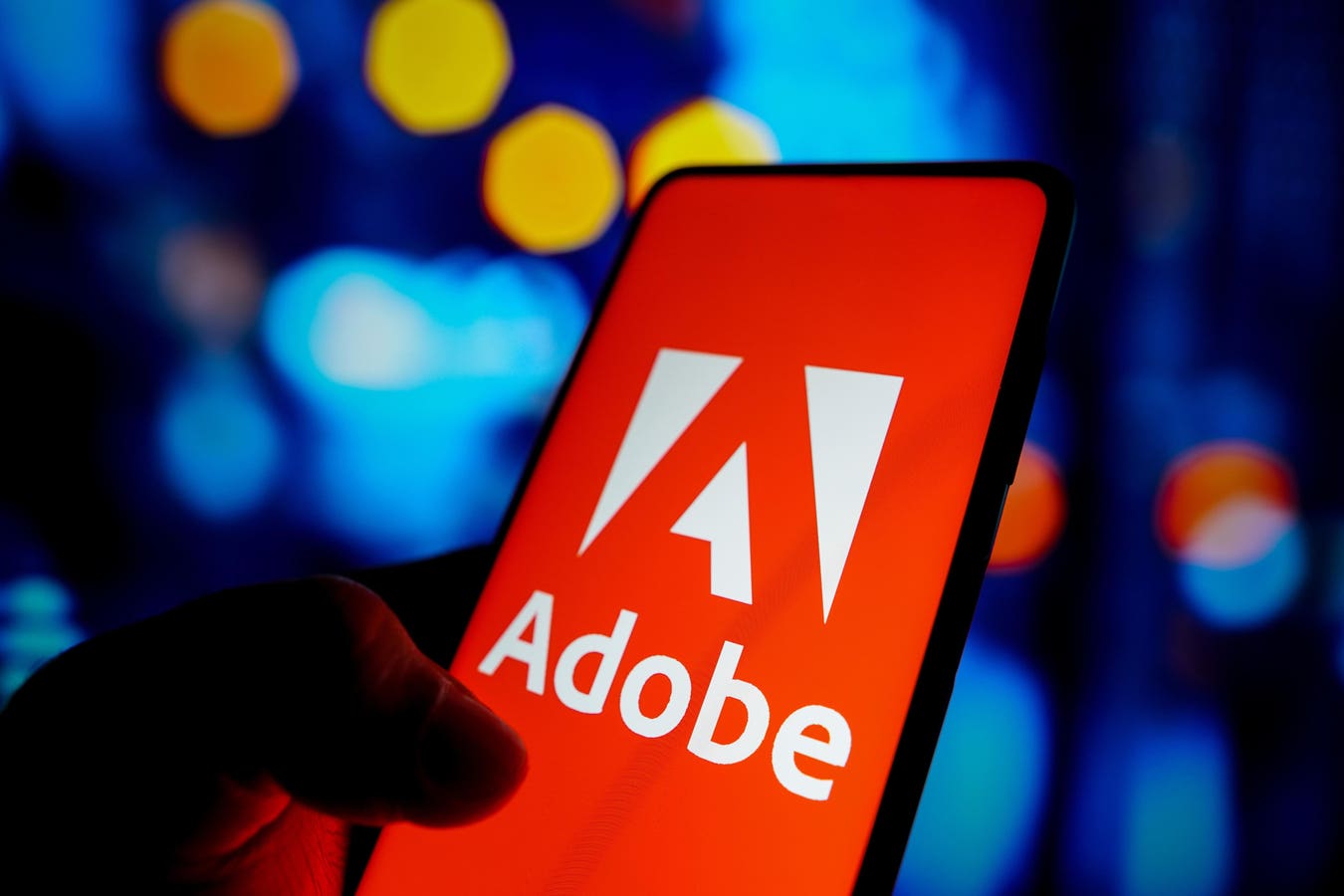As an Adobe shareholder, I am pleased customers are finding value in the company’s Generative-AI-powered services and curious about how much additional revenue growth those services will deliver.
This week the Photoshop maker held its annual user conference, Adobe Max, at which it announced new AI services. Sadly, while predicting “another really strong [November-ending] quarter,” according to the Wall Street Journal, Adobe neglected to satisfy my curiosity.
Nevertheless, the company’s shares have risen 5% since October 10 when Adobe Max kicked off and 66% since the start of 2023.
In an October 11 interview with Anil Chakravarthy, President of Adobe’s Digital Experience Business and Worldwide Field Operations, I learned more about some of the factors that would help me estimate Adobe’s Generative AI revenue uplift.
Here are the key findings:
- Higher prices. In November Adobe is raising prices for its Creative Cloud — the company’s graphic design, video editing, and photography software — “by about 9% to 10%,” CNET reported. Sadly an Adobe spokesperson declined to specify its average usage fee “as it can vary depending on the organization’s size and expected usage.”
- Expansion of total addressable market. Adobe plans to share with analysts how much Generative AI will expand its TAM at its next analyst meeting, Chakravarthy said.
- New use cases for existing products. Chakravarthy predicts a surge in the need for marketers to produce content to satisfy the demand of social media. He envisions Generative AI helping companies tailor their marketing messages to specific customers segments and sharing content to relevant social media such as Instagram and TikTok.
- Dramatic increase in the number of users. Generative AI will make Adobe Analytics — a tool for tracking the effectiveness of marketing campaigns — and Experience Manager — a content and digital asset management service — easy to use for more people. “We think it will increase by five to 10-fold the number of people who can use these tools,” Chakravarthy said.
- Compelling boost in content creator productivity. New AI features in Photoshop could cut hours from the editing process and a forthcoming “conversational” version of its Acrobat software can read, analyze and create PDF documents. Mark Moerdler of Bernstein expects Adobe’s AI tools to save users “hours of repetitive and mundane work,” the Journal reported.
One risk to Adobe is the high costs to operate its Generative AI tools. Chakravarthy said Adobe’s prices are less than the value its products deliver customers and the “high operating cost is offset by the pricing increase.”
Perhaps this helps explain why analysts “expect Adobe’s adjusted operating margins to remain above 45% despite the high cost of powering AI services,” the Journal reported.
From Growth Through Acquisition To Product Innovation
This year’s Adobe Max marks a return to the company’s heritage of growth through internally-developed product innovation rather than through acquisition.
While the company’s 2022 user conference featured detailed financial projections and talk Figma — At $20 billion, Adobe’s largest ever acquisition is 13 months into a regulatory review — this week’s conference was light on financial details and long on vision, the Journal noted.
Despite expectations of 10% revenue growth in its November-ending fiscal year 2023 — the slowest in nearly a decade — some analysts are thrilled with Adobe.
How so? Morgan Stanley’s
MS
Adobe plans to provide fiscal year 2024 revenue projections in December — which analysts say will translate into 12% growth — two percentage points above the company’s FY 2023 projection, noted the Journal.
Why Customers Value Adobe’s New Products
Adobe’s Generative AI vision offers “some of the clearest use cases that could prove especially popular with its user base. The Firefly image generation tool that was just put into beta trials earlier this year is now on its second generation — [dubbed Firefly Model 2] — with new versions announced this week for audio, video and 3-D image creation,” the Journal reported.
Model 2 enables users to overcome writer’s block. “Customers can use Firefly technology in Photoshop. If a user has an image, they can enter it as a prompt and it will produce new content. Just like writers, creative people have writer’s block. They can use Firefly for ideation. It gives them a great starting point,” said Chakravarthy.
Generative AI can help meet the growing demand for content. “Firefly enables the enterprise executive to scale content production for digital marketing and personalization. In the next two years, content needs will increase five-fold. To scale in an agile way, you will have to use automation and Generative AI. Enterprises buy from Adobe because it avoids the need to train employees in 10 different tools,” he explained.
Adoption of the AI features in Photoshop has been 10 times higher than an average major product launch, said Alexandru Costin, Adobe vice president of generative AI. “The way we achieved this with Firefly models — we integrated it natively into the creative workflows,” Costin told Bloomberg.
Adobe’s New Prices
Adobe is increasing prices in November. Adobe subscription plans enable customers to use Firefly many times per month, but in November, Adobe is raising Creative Cloud prices by about 9% to 10%, CNET reported.
Adobe is using a system of Generative Credits for tools such as Firefly which the Journal described as requiring “more frequent users of the service [to] pay more for the privilege.” Customers will use Adobe’s Generative Credits “to turn a text-based prompt into Photoshop, Illustrator, Express and the Firefly web application images and vector creations,” according to Adobe.
Adobe needs to cover the costly load Generative AI places on Adobe’s cloud computing operations. Contributing to those costs are the “high price tag of Nvidia processors that handle most generative AI work” and the inability of ordinary laptops to host the big AI models, CNET reported.
Adobe’s pricing strategy encourages more widespread adoption which could help defray higher operating costs. “Generative credits let users try it out without worrying whether they are using it too much. Firefly has over three billion creations so far. The product’s value exceeds our price increase which will help Adobe defray more of the cost of operating Generative AI,” Chakravarthy told me.
How Generative AI Will Satisfy Surging Demand For Marketing Content
Generative AI could increase the already considerable number of customers using Adobe’s Experience Cloud — a service for “delivering, measuring and personalizing customer experiences.”
How considerable? An Adobe spokesperson emailed me October 12, the service is now used by “over 12,000 customers – including 87% of Fortune 100 companies and 74% of Fortune 500 companies.”
Adobe Analytics has customers among the leaders in many industries. “In the retail sector, nine of the top 10 U.S. brands rely on AA to understand shopper journeys that move from online to in-store,” the spokesperson wrote. He provided similar Adobe customer counts for the hotel, airline, financial services, media, healthcare and other industries.
Adobe expects Generative AI to increase the size of its market opportunity and to expand its user base. “It does expand our total addressable market. We will announce new TAM numbers at our next analyst meeting. As Adobe Chief Strategy Officer Scott Belsky said, ‘Generative AI raises the ceiling and lowers the bar.’ You can produce a lot more electronic content and it opens new use cases. We charge on a per-user basis. Our new products will increase the number of users and their frequency of use,” Chakravarthy told me.
Adobe’s Future In Generative AI
Adobe says customers value its current Generative AI products and plans to introduce more.
Adobe sees customers getting considerable business benefits from Generative AI.
“Generative AI gives you agility. Once you have a campaign, the technology can allow you to move much faster to share it on Instagram and TikTok. Generative AI automates more of what was previously done manually — thus freeing up time for content creators to do more creative work. Overall, Generative AI will let enterprises produce more creative assets with the same expense; attract more Creative Cloud subscribers; enable more segment-specific campaigns, increase customer acquisition, boost customer engagement, and raise customer retention,” Chakravarthy said.
Adobe sees a bright future for Generative AI in its products. “We see tremendous potential. We can expand into video and 3-D. We will integrate Generative AI into our Creative, Document and Experience clouds. Generative AI will help customers use technology to deploy new use cases faster,” he told me.
I do not have enough information to quantify the revenue impact of those words. October 10, Adobe Chief Financial Officer Daniel Durn said “we expect to deliver stable, consistent operating margins through this investment cycle.”
Twenty nine analysts set an average 12-month Adobe price target of $610 — 10.3% above its Friday close, CNN reported.
With its stock up so much in 2023, investors could be in for a nasty shock if their expectations get ahead of the growth Adobe actually delivers.
Disclosure: I have owned Adobe shares since 2005 when the company acquired Macromedia.
Read the full article here







